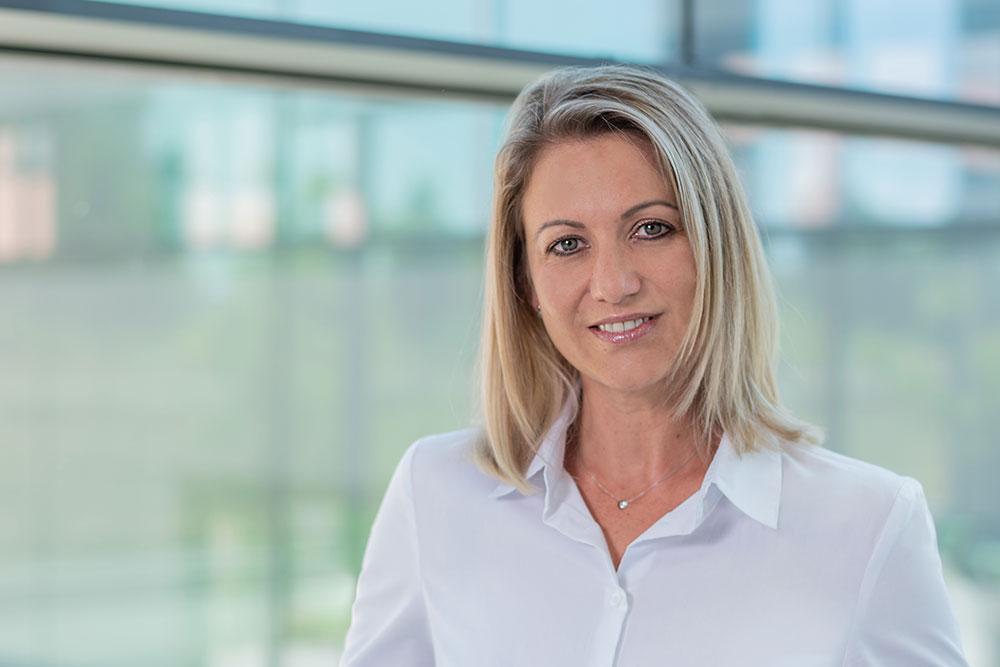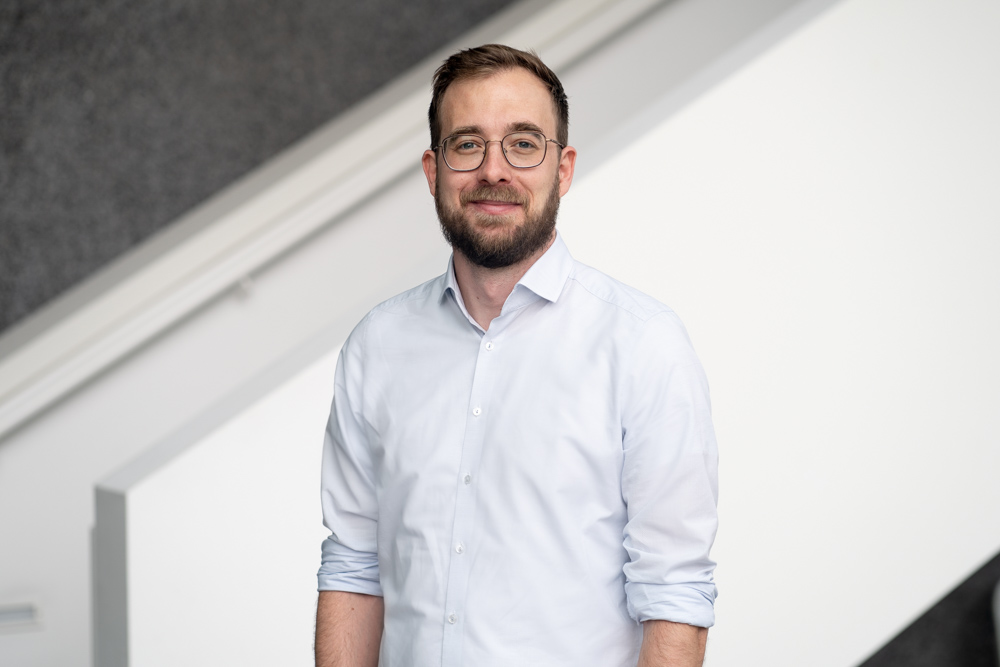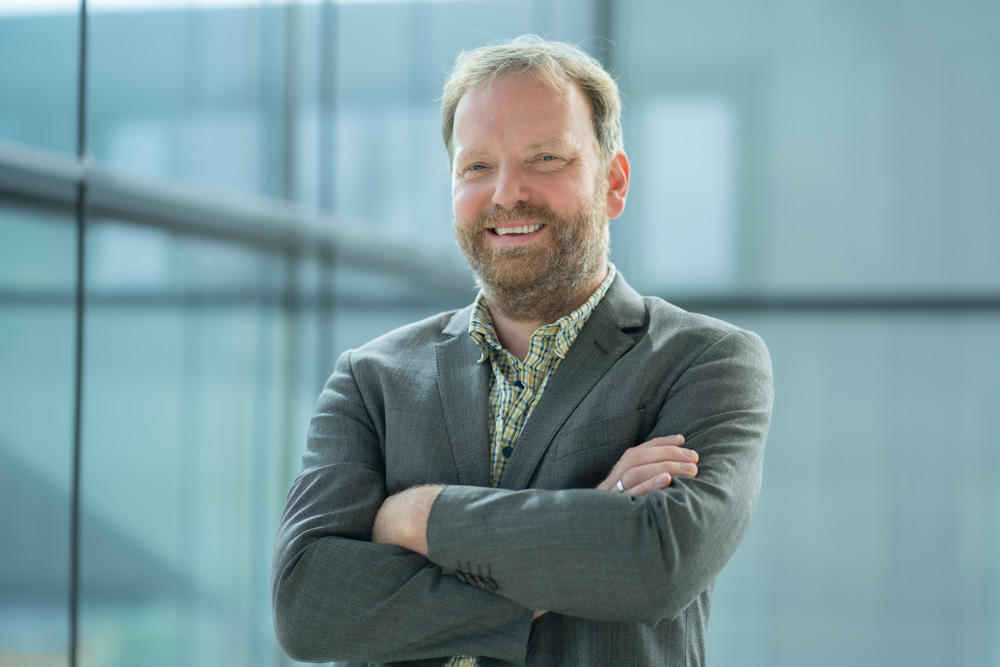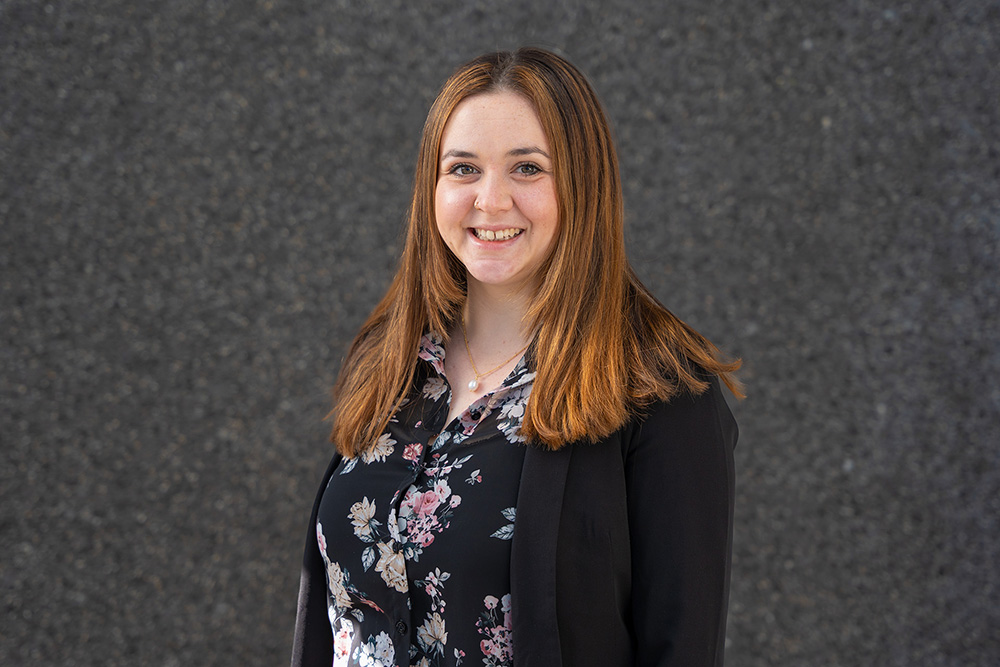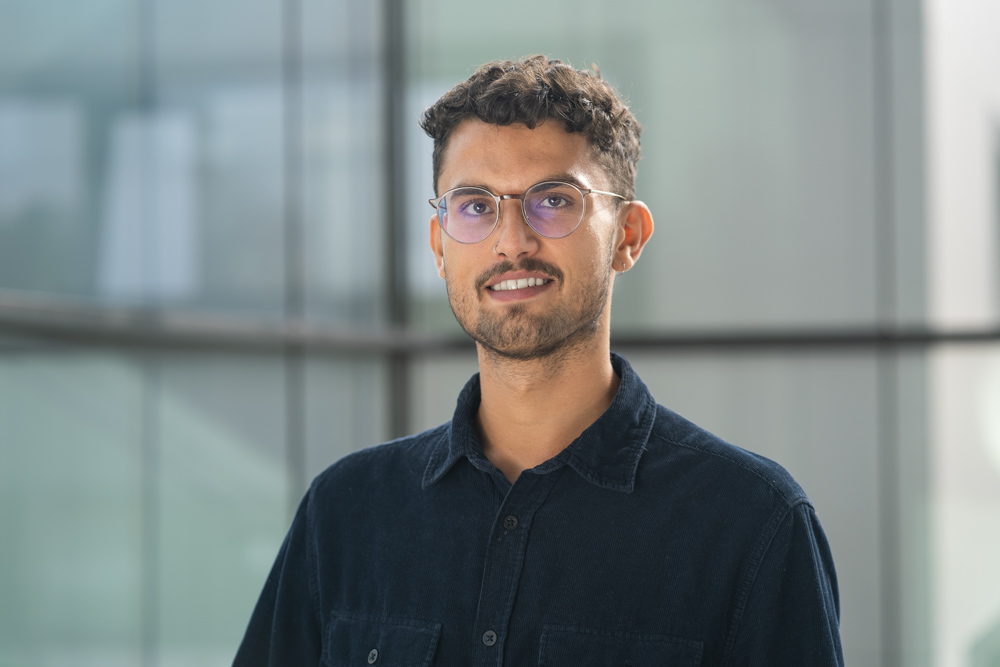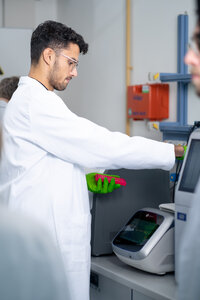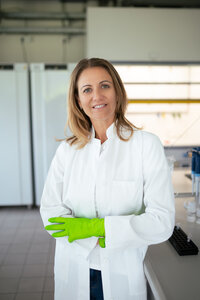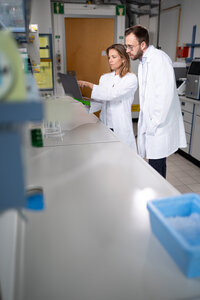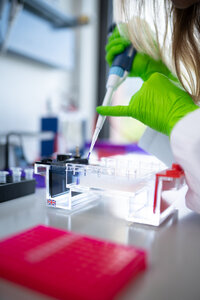BIOINFORMATIK
ForschungsgrupPe Life science informatics an der THD
News
General Information
How much Information is inside us?
The human genome contains about 3 billion letters in almost every one of the 100 trillion cells. Techniques in biomedical research and molecular diagnostics enable to read out and analyze this sequence of letters, to identify errors and thus the cause of certain diseases, and to treat them in a targeted manner.
Bioinformatics- a fascinating, but also challenging field has developed rapidly in the last decades and continues to do so. Bioinformatics deals not only with genomic sequencing data, but also with molecular structures, enzymatic activities, medical and pharmacological statistics, to name just a few topics. Analyzing biological sequences plys an important role in natural sciences, especially in molecular diagnostics, precision medicine, and personalized medicine.
What is Next Generation Sequencing?
The Next Generation Sequencing (NGS) technology produces large amounts of data of the (human) genome, epigenome and associated transcriptome, the analysis and interpretation of which is a growing challenge. It is important to create a functional and resilient interface between natural scientists and computer scientists. The volumes of data generated in the decoding of human, animal or plant genomes, for example, must be processed and correlated in order to make them useful.
Team
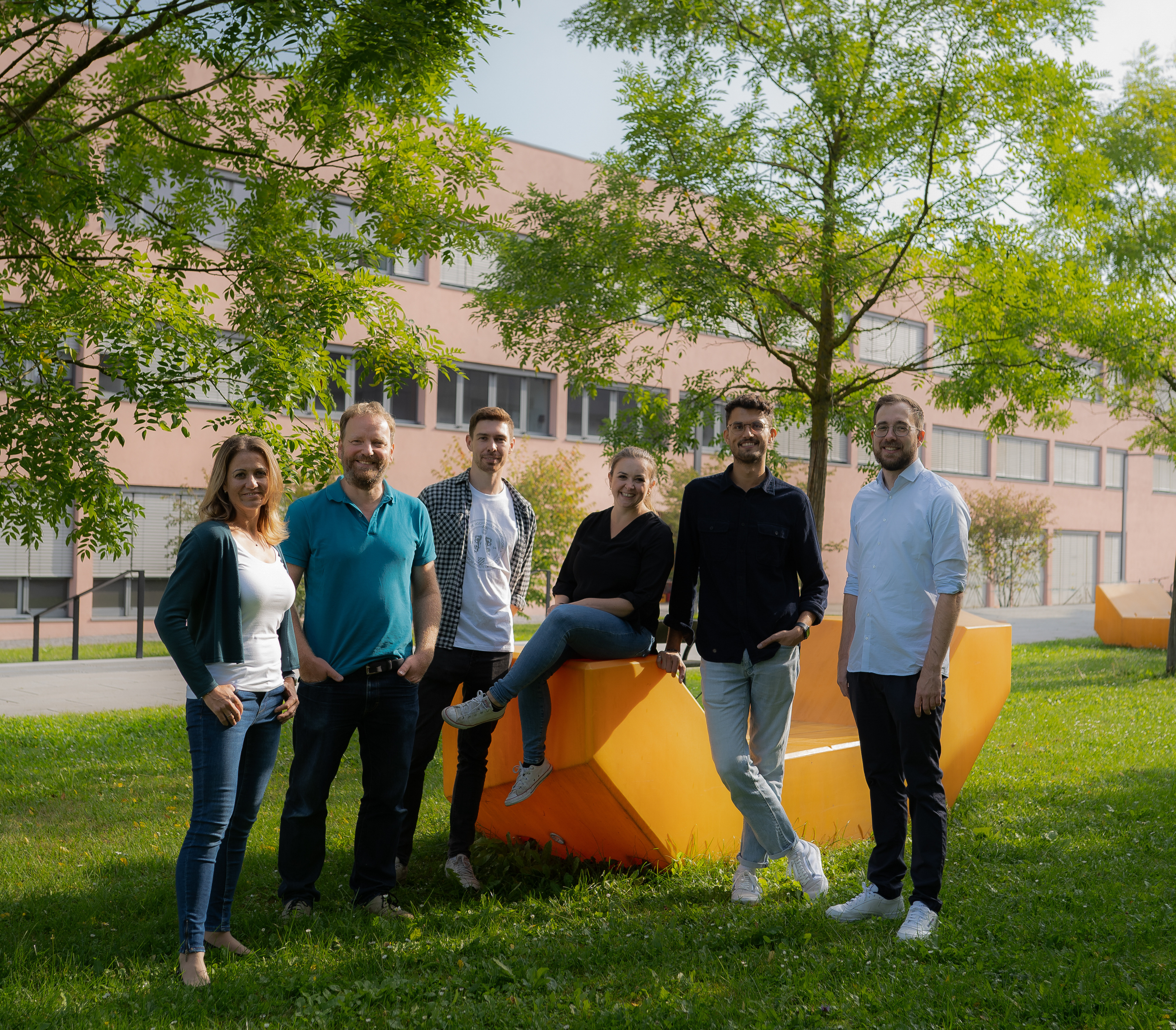
Translational Biomedicine LAB
Recently, the institute has a new laboratory for molecular cell biology. Here cells can be cultivated as well as DNA, RNA and proteins can be isolated, modified, measured and detected. This laboratory is used as a teaching laboratory in current courses in bioinformatics. Current scientific work is also carried out in this laboratory.
Method Spectrum:
- Cell Culture
- Microscopy
- Nucleic acid analytics (DNA, RNA)
- Protein analytics
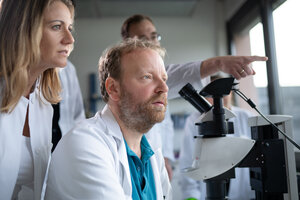
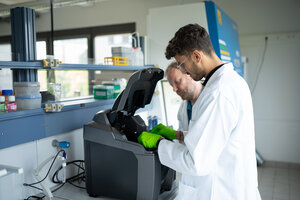
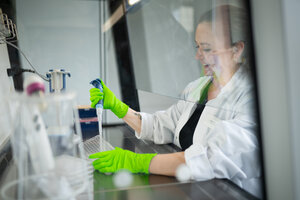
Research
Research Focus:
Transcriptional regulation in malignant melanoma
- Molecular mechanisms of differential transcriptional activity of AP-1 factors in malignant melanoma
In general, transcripton factors are proteins that bind specific DNA sequences and represent the primary regulators of gene expression at the transcriptonal level. Dysregulaton of such factors often leads to an impaired expression of specific target genes, resulting in altered function and the development of a malignant phenotype. During the development and progression of malignant melanoma the activating protein-1 (AP-1) transcription factor family plays a key role. Our working group aims to elucidate the molecular mechanisms of AP-1 transcription factors that promote the development of a malignant phenotype by analyzing corresponding RNA-Seq and ChIP- Seq data. This research focus is performed in cooperation with the Institute of Biochemistry of the FAU Erlangen Nuremberg (AG Bosserhoff).
- Differential gene expression analysis in 3D cell culture models reflecting the in vivo situation in cancer
The establishment of 3D-printed cell models represents an important topic in the field of cancer research to be able to mimic the in vivo situation of cancer cells in vitro. Using analysis of RNA-Seq data generated from these cell models, we ask basic scientific questions about the origin of quiescent tumor cells and cellular differentiation and what changes in gene expression underlie these cellular effects. This research focus is performed in cooperation with the Institute of Biochemistry of the FAU Erlangen Nuremberg (AG Bosserhoff).
Bioinformatics
- Application of bioinformatic software and machine learning to analyze high-dimensional biological data (e.g. DNA, RNA, ChIP, qPCR, (medical) imagesand others.
- Development of new computational tools and algorithms to gain new insights into biological processes.
- Analysis pipeline development with an emphasis on reproducible data analysis using state-of-the art workflow managers.
- Development of web-applications for custom analysis to simplify analysis tasks for end-users.
Teaching
Study programs:
"You love challenges and want to know how living organisms are programmed? Then study BIOINFORMATICS!"
Workshops:
"With us, you can understand RESEARCH WORK IN THE LAB and learn interesting facts about cell biology, molecular genetics and genetic engineering.
PArtner
- Prof. Dr. Anja Bosserhoff
University of Erlangen- Nuremberg
Institute for Biochemistry
Research Group: Biochemistry und Molecular Medicine
email: anja.bosserhoff@fau.de
Fahrstraße 17
D-91054 Erlangen
- Prof. Dr. Michael Rehli
c/o Universitätsklinikum Regensburg
RCI Regensburger Centrum für Interventionelle Immunologie
Research Group: Mononuclear Phagocytes & Epigenetics of Cell Differentiation Lab
email: michael.rehli@ukr.de
Franz-Josef-Strauß-Allee 11
D-93053 Regensburg
- Prof. Dr. Ralph Marienfeld
University Medical Center Ulm
Institute of Pathology
email: ed.mlu-kinilkinu@dlefneiram.flar
89070 Ulm
- Prof. Dr. Andreas Wieser, Dr. Alexander Stolz, Dr. Susanna Oswald
Fraunhofer Institute for Translational Medicine and Pharmacology ITMP
Immunology, Infection and Pandemic Research IIP
Türkenstraße 87
80799 Munich
email: Wieser@mvp.lmu.de, Susanna.Oswald@itmp.fraunhofer.de, Alexander.Stolz@itmp.fraunhofer.de
- Dr. Josef Scheiber
BioVariance GmbH
email: josef.scheiber@biovariance.com
Konnersreuther Sr. 6g
95652 Waldsassen
- PD Dr.rer.nat. Ralph Fingerhut
SYNLAB MVZ Weiden GmbH
email:Ralph.Fingerhut@synlab.com
Zur Kesselschmiede 4
92637 Weiden
- MVZ Klinikum Deggendorf GmbH, Abteilung Onkologie
Perlasberger Straße 41
94469 Deggendorf
- DONAUISAR Klinikum Deggednorf-Dingolfing- Landau gKu
Perlasberger Straße 1
94469 Deggendorf
- Abteilung Molekularpathologie des Institutes für Pathologie und Zytologie am DONAUISAR KLINIKUM Deggendorf
Perlasberger Straße 41
94469 Deggendorf
